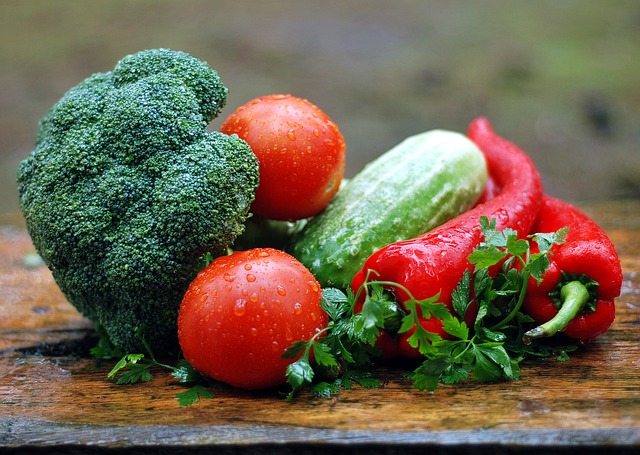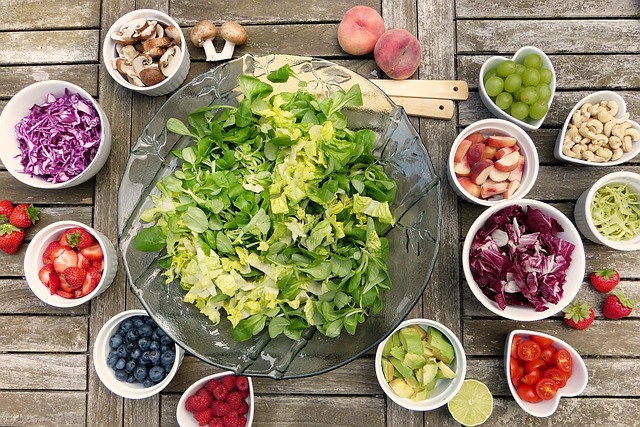A clean gut is a healthy gut and it has more friendly bacteria. Food and nutrients are better absorbed and you feel more energetic when your body is free of toxins. However, for most people, getting rid of toxins is usually associated with detox diets. Detox diets can be harmful as stated in Every Day Health. One reason is that detox diets usually lack proteins and introduce more fiber into the body than the gut is used to handling.
There are positive aspects to one or two-day fasts that can give your gut a rest and help the liver and kidney get rid of toxins. A better way would be to go fully organic and eat a balanced diet made up of only organically grown vegetarian foods. How is it better? Read on.
1. Organically grown foods have fewer chemicals and pesticides and more nutrients

A study of Warsaw University shows that organically food has a higher amount of nutrients, phytophenols, Vitamin C and essential amino acids.
Organic foods also have no harmful chemicals and pesticides. Some pesticides used in agriculture have a high persistence factor (such as DDT) and stay inside the body for a long time, adding to the toxicity. By switching to organic foods you eliminate a potential source of toxins and keep your gut safe.
Even meat from organically grown cattle feed is better in all respects and free of toxins.
Organic dairy products do not have harmful oxytocin and pesticides, making them better for children and adults alike to keep the gut healthy.
2. Organic crops have higher antioxidant activity

Many studies show that organically grown foods have lower cadmium and heavy metal concentration as well as lower or nil pesticide levels.
One convincing reason emerges from the study and that is the higher antioxidant activity of antioxidants found in vegetables, herbs, and fruits grown organically. Eating even smaller amounts will give higher benefits since antioxidants help in flushing out toxins as well as in tackling oxidative damage to cells.
3. An organic diet is better than a detox diet

Detox diets are good as a short solution but these have a lop side nutritional composition with a significant lack of proteins.
Instead, resorting to a balanced meal comprising of only organic foods that include healthy portions of organic lentils, prebiotics such as cabbage, broccoli, and cauliflower, seeds such as flaxseed, combination of healthy nuts along with fibrous leafy greens and berries that contain higher phytophenols, minerals, and vitamins are better for systemic gut health.
4. Organic foods are tasty

Genetically modified foods and foods grown with the use of pesticides and synthetic, no doubt look bigger and attractive, but are tasteless and have lower nutrient content. Organic food, on the other hand, may not look quite as appealing but it is tastier and more nutritious. For antioxidants to work you must take in sufficient quantities for the ORAC value to have any effect. Tasty organic food means you eat more of it and get more vital phytonutrients that cleanse your gut.
Your gut bacteria also welcomes such organic-based nutrients and flourishes since your gut can better absorb biotics when they are organic in the source, free of heavy metals, pesticides and complex organic chemicals such as BPA.
5. Food is medicine says Ayurveda

Indian Ayurveda, whose ancient wisdom is now being internationally accepted, succinctly states that food is medicine.
Eat the right combination of foods at the right time, according to the season and your stomach and gut will be healthier. It will endow you with energy and good mood as well as positive thoughts. This is why “satvik” food is encouraged in Ayurveda. Organic food eaten according to the season and eaten at the right time of the day is far better than impulsive detoxing.
6. Load on the gut reduces

Non-organically grown foods, due to the presence of chemicals and pesticides, reduce gut efficiency and impose a higher burden. Organic food actually revitalizes the gut while reducing load and this has an overall systemic effect on health.





